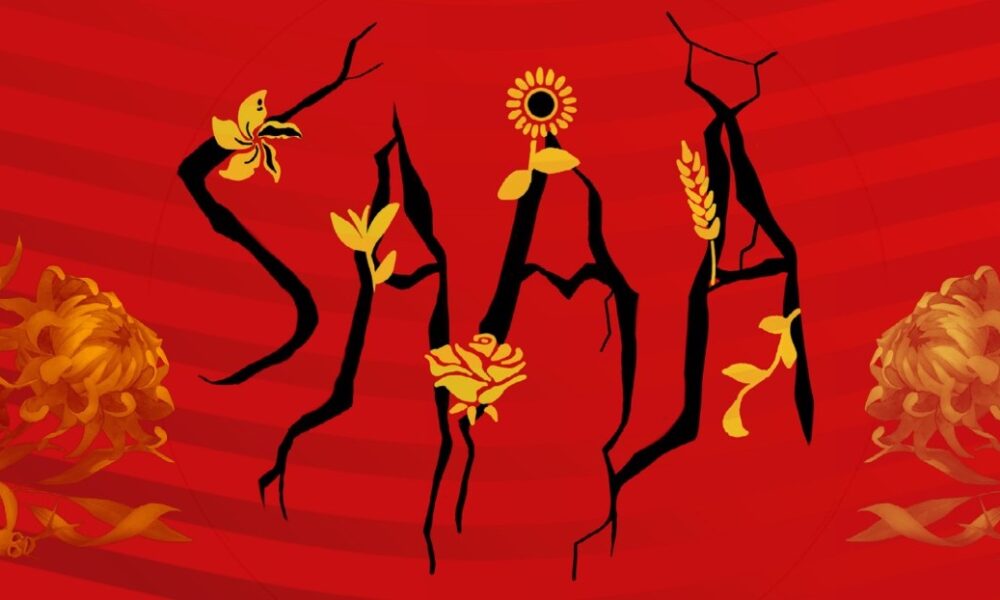A group of McGill students held a “Week for Solidarity Against Authoritarianism in Asia” from March 7 to March 11, aiming to raise awareness and foster discussions about the realities of ongoing authoritarianism in parts of Asia. Students, activists, academics, journalists, artists, and more convened to discuss the many ways authoritarian regimes can disrupt and endanger lives, and to stand in solidarity with those resisting it. The first three events, which were held on Zoom and streamed on Facebook, navigated anti-authoritarian activism, the intersections of gender and migration, and the role of media and threats to press freedom, respectively. The final event, a screening of the student films “Naglalahong Pamana” and “Women for Yangon,” was held in person in the McCall MacBain Arts Building.
Two of the organizers, Pratik Mahajan and Kai Scott, both U3 Arts, explained in an interview with The McGill Tribune that the team made a conscious effort to platform individuals from a variety of professions and backgrounds—as opposed to solely centring academic voices. By inviting guests across diverse domains, they hoped to engage discussions about the wide-reaching, often intersecting consequences of authoritarian governance.
“There’s no way you can throw around these really abstract terms like ‘authoritarianism.’ And it can be quite hard to pin down what exactly that looks like,” Scott said. “The goal was [to] see each [of the events] as anchors, where we will get a bunch of people […] with lots of different angles focussed on this one particular manifestation. Then from there, hopefully, we can have really interesting discussions about what actually getting actively involved with that looks like.”
During the “Journalism and Freedom of the Press in Authoritarian Contexts” round table, Naw Hsa Moo spoke to the sobering realities of reporting in Burma. Hsa Moo, a journalist, a human rights, peace, and environmental activist, and member of the Karen ethnic minority, spoke to the heightened terror and danger she faces reporting on the ground.
“The situation for journalists in ethnic areas, especially in the conflict zone, is even worse,” Hsa Hoo said. “In Karen State, I witness first-hand experience of Burmese military attacks against Karen civilians with heavy artilleries and air strikes. When I travel to report in areas of Karen State […] I have to tell the stories of what the Burmese military is doing. The world needs to know. But there is constant fear. Fear of an airstrike. Fear of being shot. Fear of being arrested.”
In line with the ethos for the week, many of the speakers provided calls to action. Mahajan found social activist, politician, and academic Yogendra Yadav’s notion of creating a “truth army” to combat misinformation particularly compelling.
“A lot of authoritarian regimes are relying on social media manipulation, especially with their troll armies […] engaging with activists and opposition leader politicians, just [having] debates in bad faith,” Mahajan explained. “Yogendra Yadav’s suggestion was that in our own capacity we try to stick up for the truth, take that pledge.”
Throughout the week, many speakers and organizers mentioned financial support as a way for students to support resistance against authoritarianism. At the “Intersections of Gender, Migration, and Authoritarianism” round table, which took place on International Women’s Day, attendees were encouraged to donate to the South Asian Women’s Community Centre, a Montreal organization that aims to support and empower South Asian women and families. And at the “Journalism and Freedom of the Press in Authoritarian Contexts” roundtable, independent media outlet Harbour Times and the Karen Environmental and Social Action Network—where Hsa Moo works—were also spotlighted.
Niranjan Takle, an Indian journalist who has worked to expose corruption and injustice throughout his career, noted that critical thinking, especially on the part of students, is crucial in combating authoritarianism.
“I would say that since you are all in your youth, and the youth do not have a fixed frame of thinking, they can think out of the box,” Takle said. “After working for a number of years, we kind of developed a frame within which we tend to think and imagine. But, since you don’t have a fixed frame of thinking, or you can think out of the box, probably you will be more helpful in suggesting innovations or innovating our stories.”
Yadav stated that those interested in getting involved can reach out to him directly by email at [email protected].









